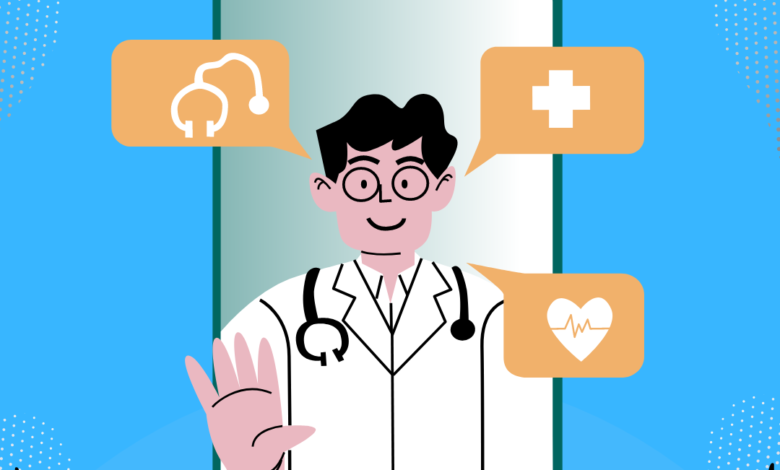
The healthcare industry in the UK is undergoing rapid digital transformation, and cloud-based solutions are at the forefront of this shift. Cloud-based healthcare software offers a variety of benefits that make it an appealing choice for healthcare providers. From cost efficiency to enhanced patient care, these solutions have the potential to revolutionize medical practices. In this blog, we will explore the key advantages of cloud-based healthcare software and why it is a game-changer for UK providers.
Cost-Efficiency and Scalability
One of the primary benefits of cloud-based healthcare software is its cost-efficiency. Traditional on-premise systems often require significant upfront investments in hardware, maintenance, and IT personnel. Cloud solutions, on the other hand, are hosted offsite by third-party providers, which significantly reduces the need for expensive infrastructure. This allows healthcare providers to focus more on patient care rather than technology maintenance.
Cloud-based systems are also highly scalable. As healthcare organizations grow, their software needs change. Cloud solutions can easily adapt to these changes by offering flexible subscription models. This scalability ensures that providers can add or remove resources as needed, without overhauling their entire IT system. As a result, both small clinics and large hospitals can benefit from using cloud-based systems without worrying about their capacity.
In addition to scalability, the cost structure of cloud solutions operates on a pay-as-you-go model, meaning providers only pay for the resources they use. This flexibility enables more accurate budgeting, particularly for smaller practices that might have fluctuating demands throughout the year.
Improved Data Security and Compliance
Security and compliance are crucial concerns in the healthcare sector, particularly with sensitive patient data involved. The adoption of cloud-based healthcare software has introduced improved security measures. Cloud service providers often implement state-of-the-art encryption, data backup, and disaster recovery protocols, ensuring that patient information is secure from breaches or accidental loss.
Cloud providers are also adept at ensuring compliance with industry standards like the General Data Protection Regulation (GDPR) in the UK. Compliance becomes easier for healthcare providers since updates and patches to meet regulatory standards are handled automatically by the cloud vendor. This eliminates the need for healthcare organizations to maintain a dedicated compliance team for software updates, thus saving both time and resources.
While security concerns about data breaches still exist, the risks are mitigated by the robust encryption and multi-factor authentication measures implemented by cloud providers. Healthcare organizations can also rely on real-time monitoring and alerts to detect any suspicious activity quickly.
Enhanced Collaboration and Accessibility
Cloud-based healthcare software enables enhanced collaboration among healthcare professionals. Medical practitioners can access patient records, treatment plans, and diagnostic reports in real-time, regardless of their location. This is particularly beneficial for multi-location healthcare providers or those with specialists who need to consult on patient cases.
The accessibility of cloud systems extends to patients as well. With patient portals, individuals can view their medical history, schedule appointments, and communicate with healthcare providers online. This streamlined access fosters better engagement between patients and their care teams, leading to improved health outcomes.
For UK healthcare providers, cloud-based systems also enhance coordination with other organizations. Whether it’s hospitals, pharmacies, or insurance companies, seamless data sharing improves the overall efficiency of the healthcare system. This interconnected approach can reduce administrative burdens, improve the speed of care, and cut down on errors that result from manual data entry.
Real-Time Data and Analytics
Cloud-based healthcare software offers robust data analytics tools that help providers make more informed decisions. Through real-time data access, healthcare providers can monitor patient outcomes, treatment effectiveness, and operational performance. These insights enable more personalized care plans for patients, as well as optimized resource allocation for providers.
For example, predictive analytics tools can identify high-risk patients before complications arise, allowing for early interventions that can save lives. Additionally, cloud platforms can aggregate data from various sources such as wearable devices, electronic health records (EHR), and imaging systems, providing a comprehensive view of a patient’s health.
With cloud technology, UK healthcare providers can easily leverage artificial intelligence (AI) and machine learning (ML) capabilities, further enhancing predictive healthcare and personalized treatment options. Cloud platforms serve as the foundation for these advanced technologies, making them accessible to healthcare providers without the need for additional infrastructure.
Disaster Recovery and Business Continuity
Healthcare providers cannot afford downtime, as it directly impacts patient care. Cloud-based systems offer superior disaster recovery capabilities that ensure business continuity, even in the event of an emergency. Unlike on-premise systems that rely on local servers, cloud solutions store data across multiple secure locations. This means that if one server fails, another will automatically take over, preventing any disruption to healthcare operations.
Cloud vendors also conduct regular backups, ensuring that patient records and other essential data are never lost. In the event of a cyberattack, natural disaster, or system failure, healthcare providers can quickly restore their operations with minimal impact on patient care. This reliability makes cloud-based software particularly appealing for healthcare providers who prioritize uninterrupted service delivery.
Environmental and Financial Sustainability
Cloud-based healthcare software not only reduces costs for providers but also contributes to environmental sustainability. By relying on remote data centers, healthcare organizations reduce their carbon footprint, as there is less need for physical infrastructure like on-site servers, cooling systems, and IT equipment.
Moreover, cloud service providers typically optimize their operations to consume less energy, leading to more environmentally friendly practices. This aspect aligns with the growing demand for sustainable healthcare solutions in the UK, where providers and patients are increasingly conscious of the environmental impact of their activities.
The financial sustainability of cloud systems is equally important. Healthcare organizations can reduce capital expenditures on IT while benefiting from continuous software improvements, making it easier to stay competitive in a fast-evolving industry.
Why Work with a Custom Healthcare Software Development Company?
To fully leverage the benefits of cloud-based healthcare software, working with a custom healthcare software development company can make a significant difference. These companies specialize in creating tailored solutions that align with the specific needs of healthcare organizations. By offering personalized software, they can ensure that healthcare providers get the most out of their cloud infrastructure, from enhanced security to more intuitive interfaces.
Additionally, a custom development company can help integrate cloud-based software with existing systems like electronic health records (EHR) and other medical devices. This level of integration ensures a seamless user experience for both healthcare providers and patients, enhancing the overall efficiency of healthcare operations.
Conclusion
Cloud-based healthcare software has transformed the way UK providers deliver care, offering a range of benefits from cost-efficiency to improved collaboration and data security. As the healthcare industry continues to evolve, embracing cloud technology is essential for providers looking to enhance patient outcomes and streamline their operations. Working with a custom healthcare software development company allows healthcare providers to harness the full potential of cloud-based solutions, ensuring they remain competitive and compliant in an ever-changing healthcare landscape.




